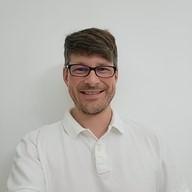Updates from the ORCD “Get Well” Plan
We’ve made significant progress in removing over 10 years of technical debt from the MIT research computing environment. All aspects of the ORCD shared systems needed, and have had, a very thorough investigation and analysis. We‘re aiming to place orders for new equipment in the coming months to further harden the entire ORCD computing infrastructure, especially around elderly and failing data storage devices, but also adding enhanced login nodes, data transfer nodes and improved network capacity. We are also currently actively installing lots of new equipment while also working hard to reduce our carbon footprint, and continue to enhance our services for our community.
Many of you will have seen email from our office around unwanted and unplanned storage outages. These recent outages are unfortunately directly related to a large number of unique and legacy storage arrays that have required time, funding and materials to repair in place. However, in better news, do also keep a lookout in your inbox for some further announcements from ORCD. There are some very exciting new shared computing offerings for the whole MIT community that will be available in the next few weeks – including the addition of 2,000 new community shared computing cores. We’ve only just begun.

Meet the Team: Michel Erb
Michel Erb spent over 20 years at Novartis before joining the ORCD team. He started his career in the lab, with a focus in molecular biology and pharmacology. From there, he shifted into a lead software engineering role, supporting sample logistics and high throughput screening systems. The evolution of lab instrumentation and technologies outputting data volumes that pushed the boundaries of what individual servers could process are what initially exposed Michel to the concepts of high performance computing. He was immediately attracted to the field and eventually started a journey to grow into supporting HPC applications and scientists full time.
Michel is a trained bench scientist with IT support credentials and a BS in Computer Science from Boston University. He moved from Switzerland to Boston in 2008; while he didn’t plan on making his relocation permanent, life made that decision for him. Outside of work, he enjoys his roles as a husband and as a father to three children under the age of seven, cooking, biking around Boston (often on rides of up to 20-30 km), and supporting early stage blockchain projects.
Undergraduate and Graduate Student Positions
ORCD is hiring undergraduate and graduate student positions! See the news post on our website for more details and application information.
We are looking for students who are passionate about the use of computing in research and who will enjoy answering questions, helping debug other researchers' technical computing problems and participating in activities to help all members of the MIT research community use computing effectively to advance research. The MIT Office of Research Computing supports computing for every part of campus spanning areas from plasma fusion research to business analytics.
Above the Fold
- Original Quantum Dot Paper
- Less is More
What We’re Reading
- Building a quantum computer, atom-by-atom
- The value of “purposeless” physics
- Why carrots are orange
